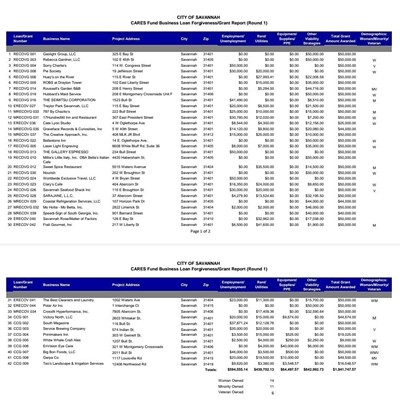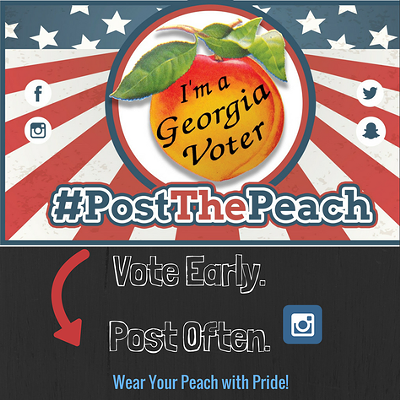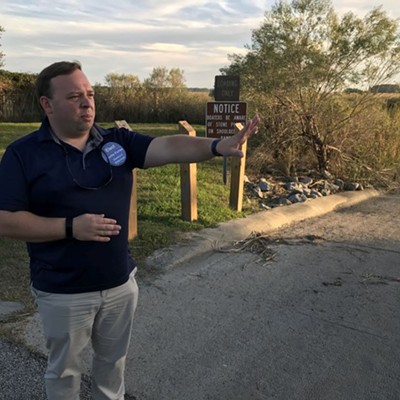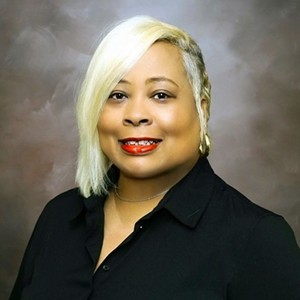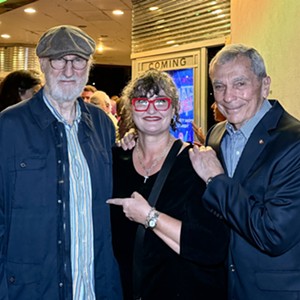IN THE WAKE of a Chatham County Grand Jury recommending not to indict Alderman Tony Thomas, District Attorney Meg Heap’s statement that the matter is closed must be taken seriously and at face value.
That said, while the actual criminal case against Thomas is all but dead, the Grand Jury’s official report in some ways raises more questions than it answers.
I certainly won’t attempt to relitigate the allegations against Thomas. That was a job for the Grand Jury and that job is done.
But to say that total closure has been achieved would be as inaccurate as saying the case is still open.
The jury report clearly states—in a conclusion endorsed by 14 of the 18 jurors —that if the statute of limitations hadn’t expired, Thomas would likely face, at minimum, misdemeanor charges for furnishing alcohol to minors.
In another statement also endorsed by 14 out of 18 jurors—it’s not clear if it’s literally the same 14—they agree that “Testimony included a pattern of behavior by Mr. Tony Thomas that could be described as a person trying to obtain sexual contact with another person in a predatory manner.”
As far as the seemingly head-scratching decision to bring the case to a Grand Jury even though it looked as if the statute of limitations had already passed, the only explanation that makes sense is that part of the scope of deliberation was indeed to officially ascertain whether or not the statute of limitations had expired.
Some issues surrounding the Grand Jury’s report were problematic above and beyond anything Alderman Thomas was himself accused of, and speak more to questions about the Jury’s own process.
In its report, the Grand Jury opted in various measures to endorse some statements which seem remarkably subjective and opinionated, and which in my opinion frankly don’t speak particularly highly of the caliber of thought process that occurred.
Most concerning, the Jury’s report in several instances seemed to highlight negative opinions about some of the witnesses against Thomas, in starkly personal terms.
One juror made this statement about WTOC journalist David Klugh, who filed several reports on the Thomas allegations:
“David Klugh in my opinion is such a coward to the point were [sic] he reached out on social media via Facebook and WTOC that he wanted to take down Tony Thomas,” the juror said.
First of all, it’s pretty rich to single out someone else for their activity on Facebook given Tony Thomas’s own highly confrontational and controversial social media presence over the years.
More importantly: What public interest is served by publishing this highly subjective opinion about Klugh, who was simply a journalist doing his job—reporting on serious allegations about a public figure and elected official?
One would think the fact that the news reports were partially responsible for the empanelment of this same Grand Jury might suffice to lend credence and credibility to said news reports, right?
(And isn’t it more accurate to say that a “coward” would have refused to report on the allegations at all?)
What kind of message does it send to publish a jury’s opinion about individual journalists, by name, who are reporting on elected officials in a matter of clear and compelling public interest?
Longtime Thomas accuser John Perry, who testified to the Grand Jury, is also attacked by some jurors (perhaps ironically, the attacks are anonymous).
“John Perry in my opinion came in ill prepared with no notes or reports on Tony Thomas. Mostly speculation and a very vindictive attitude,” agreed one juror.
I didn’t realize witnesses were obliged to have notes and reports! I thought they just answered questions.
Four jurors agreed with this statement:
“I think that John Perry, David Klugh, and the other 3 witnesses were out to get Tony Thomas.”
Regardless of what you think about Thomas, what message does this send to future witnesses in Chatham County?
Say, a jury deliberating a much more serious crime? Or another jury deliberating about another elected official?
What would you do, knowing that the next Grand Jury might opt to judge you harshly along with the actual defendant?
Perhaps even more problematic is the clear and unsubtle victim-blaming some members of the Grand Jury indulged in.
Three jurors said they agreed with this statement:
“While the argument could be made about how Alderman Thomas might have ‘groomed’... the testimonies we’ve heard support the opposite. I truly feel sorry for the alleged victims and their loved ones for going through such a turbulent time in their lives at the moment and hopefully they will receive the assistance they need to cope with their problems/inner demons.”
Imagine how you’d respond to that if this were a much more serious case, say, a rape case involving female victims.
How would you feel reading jurors’ statements that the women were “going through such a turbulent time in their lives” and that the women had “problems/inner demons” which put them in a position to be victims of sexual assault?
To be perfectly clear: I’m not in any way suggesting any actual, direct correlation between the Tony Thomas case and any kind of rape case. Not at all.
This was a civil Grand Jury, not a criminal proceeding.
I am however pointing out the troubling attitude of some of the jurors, and how in this case some of them seem to have spent more time examining the credibility of the witnesses than of the defendant.
Beyond agreeing or disagreeing with the verdict, it seems a poor reflection on the political health of the community.
While there’s no question that Thomas was largely exonerated -- pending potential civil lawsuits -- and this chapter is concluded, the book itself isn’t finished yet and there is still a bad taste in the air.
The rest, as they say, is up to the court of public opinion.

